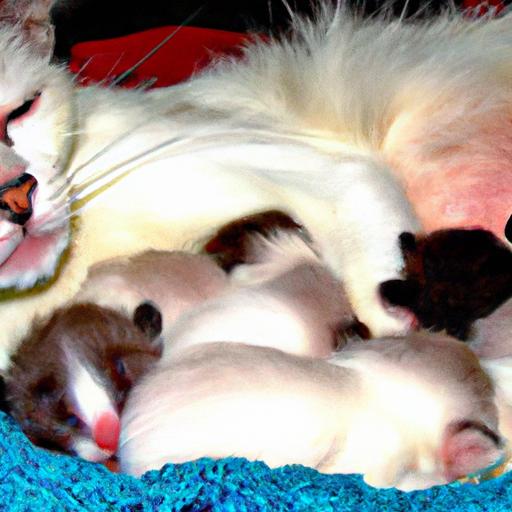
Understanding the Nitrogen Cycle in Coral Reef Aquariums
Discover the importance of understanding the nitrogen cycle in coral reef aquariums. Learn how to maintain a healthy ecosystem for your underwater paradise.
Introduction
Welcome to the fascinating world of coral reef aquariums! If you’re a passionate aquarist or a beginner looking to dive into this captivating hobby, understanding the nitrogen cycle is crucial for the health and longevity of your coral reef ecosystem. In this article, we will explore the intricacies of the nitrogen cycle in coral reef aquariums, its significance, and how to maintain it effectively.

Understanding the Nitrogen Cycle in Coral Reef Aquariums
Before we delve into the details, let’s take a moment to understand what the nitrogen cycle actually is. In simple terms, the nitrogen cycle is the biological process that converts harmful ammonia, produced by fish waste and decaying matter, into less toxic compounds, such as nitrite and nitrate, through the activity of beneficial bacteria.
The Role of Beneficial Bacteria
Beneficial bacteria play a crucial role in the nitrogen cycle. They are responsible for breaking down ammonia into nitrite, and subsequently, nitrite into nitrate. These bacteria, known as nitrifying bacteria, establish themselves in the aquarium’s filtration media, gravel, live rock, and other porous surfaces. This establishes a delicate balance in the aquarium, ensuring the conversion of toxic ammonia to less harmful compounds.
Steps of the Nitrogen Cycle
The nitrogen cycle consists of three main steps: ammonia, nitrite, and nitrate.
-
Ammonia: Ammonia is the primary waste product excreted by fish and other inhabitants of the aquarium. High levels of ammonia can be deadly to fish and coral. However, the presence of beneficial bacteria converts ammonia into nitrite, which is less toxic.
-
Nitrite: Nitrite is the next stage of the nitrogen cycle. While it is less toxic than ammonia, high levels of nitrite can still harm coral and fish. Fortunately, another group of beneficial bacteria, known as nitrite-consuming bacteria, convert nitrite into nitrate.
-
Nitrate: Nitrate is the final product of the nitrogen cycle. Although it is the least toxic compared to ammonia and nitrite, high levels of nitrate can lead to algae growth and other issues in the aquarium. Regular water changes and other maintenance practices are necessary to keep nitrate levels in check.
Factors Affecting the Nitrogen Cycle
Several factors can influence the nitrogen cycle in coral reef aquariums. These include the following:
-
Bioload: The number and size of fish, invertebrates, and corals in your aquarium affect the amount of waste produced, directly impacting the nitrogen cycle.
-
Filtration System: A well-designed filtration system ensures efficient water circulation and provides a suitable environment for beneficial bacteria to thrive.
-
Temperature and pH: Beneficial bacteria are sensitive to temperature and pH fluctuations. Maintaining stable water parameters is essential for their optimal function.
-
Feeding Habits: Overfeeding can result in excess waste, leading to an imbalance in the nitrogen cycle. It is crucial to feed your aquarium inhabitants appropriately.
FAQ on the Nitrogen Cycle in Coral Reef Aquariums
Now, let’s address some frequently asked questions regarding the nitrogen cycle in coral reef aquariums.
What are the signs of an imbalanced nitrogen cycle?
An imbalanced nitrogen cycle can manifest in various ways. Some signs to watch out for include excessive algae growth, foul odors, stressed or unhealthy fish, and coral bleaching. Regular testing of water parameters is key to identifying any imbalances.
How long does it take for the cycle to establish in a new aquarium?
The establishment of the nitrogen cycle in a new aquarium can take anywhere from a few weeks to a couple of months. The process relies on the growth of beneficial bacteria, which requires time to establish a stable colony.
Can I speed up or slow down the nitrogen cycle process?
While it is not possible to significantly speed up the nitrogen cycle process, there are a few steps you can take to help it along. Adding live rock or filter media from an established aquarium can introduce beneficial bacteria, expediting the cycle. On the other hand, introducing new fish gradually can help slow down the cycle to ensure the bacterial colony can handle the increased bioload.
How can I test and monitor the nitrogen levels in my aquarium?
Regular testing of water parameters is essential to monitor the nitrogen levels in your aquarium. Test kits are readily available and can measure ammonia, nitrite, and nitrate levels accurately. By keeping a close eye on these levels, you can take appropriate measures to maintain a healthy nitrogen cycle.
Are there any risks associated with an imbalanced nitrogen cycle?
Yes, an imbalanced nitrogen cycle can pose risks to the overall health and vitality of your coral reef aquarium. High ammonia and nitrite levels can be toxic to fish and coral, leading to stress, illness, or even death. Additionally, elevated nitrate levels can contribute to excessive algae growth, negatively impacting the aesthetic appeal of your aquarium.
Conclusion
In conclusion, understanding and maintaining the nitrogen cycle in coral reef aquariums is of utmost importance for the well-being of your aquatic ecosystem. By comprehending the role of beneficial bacteria, the steps involved in the nitrogen cycle, and the factors that influence it, you can create a thriving and balanced environment for your coral and fish. Regular monitoring, appropriate feeding, and proper maintenance practices will help ensure a healthy nitrogen cycle and a vibrant coral reef aquarium. So dive in, embrace the nitrogen cycle, and enjoy the wonders of your very own underwater paradise!





























